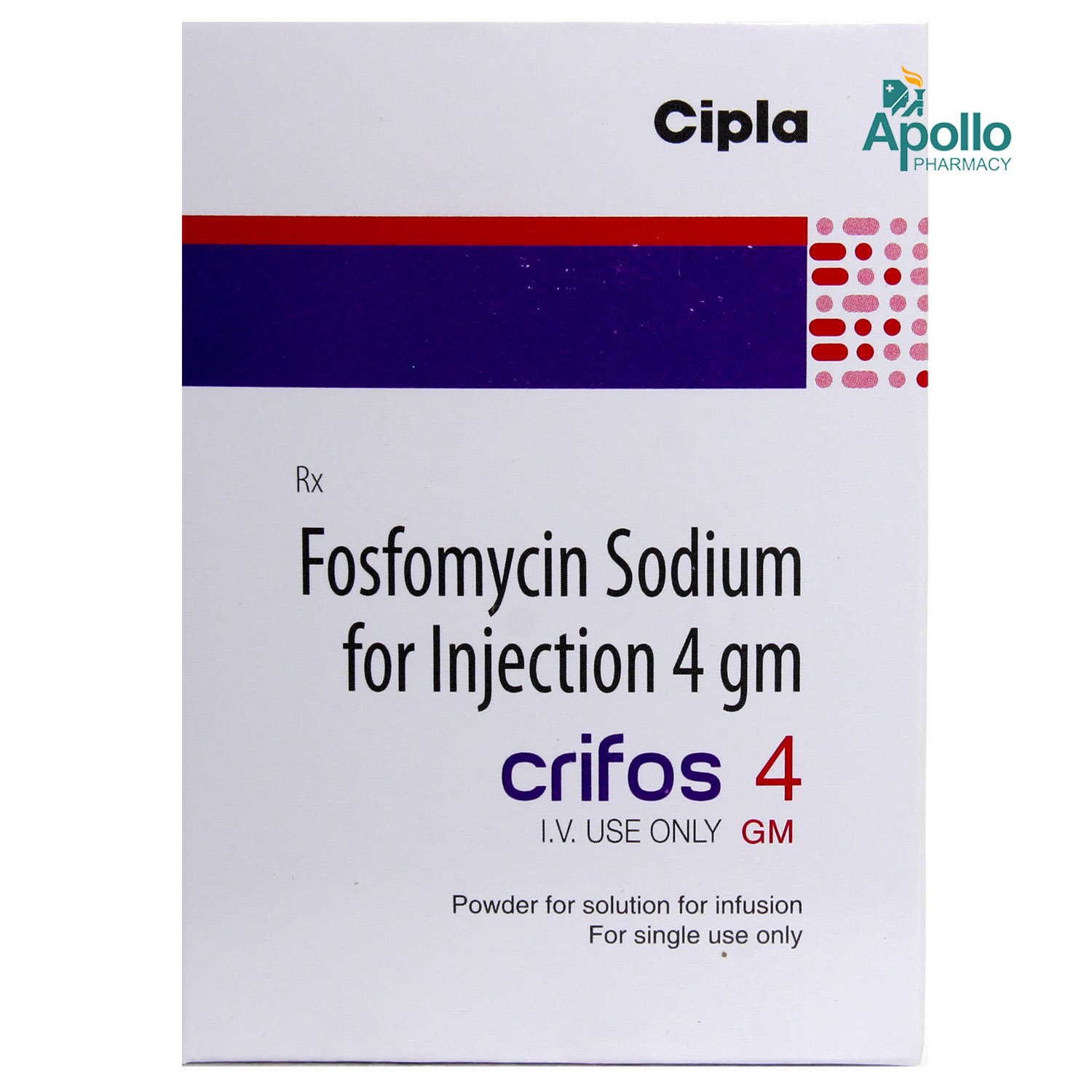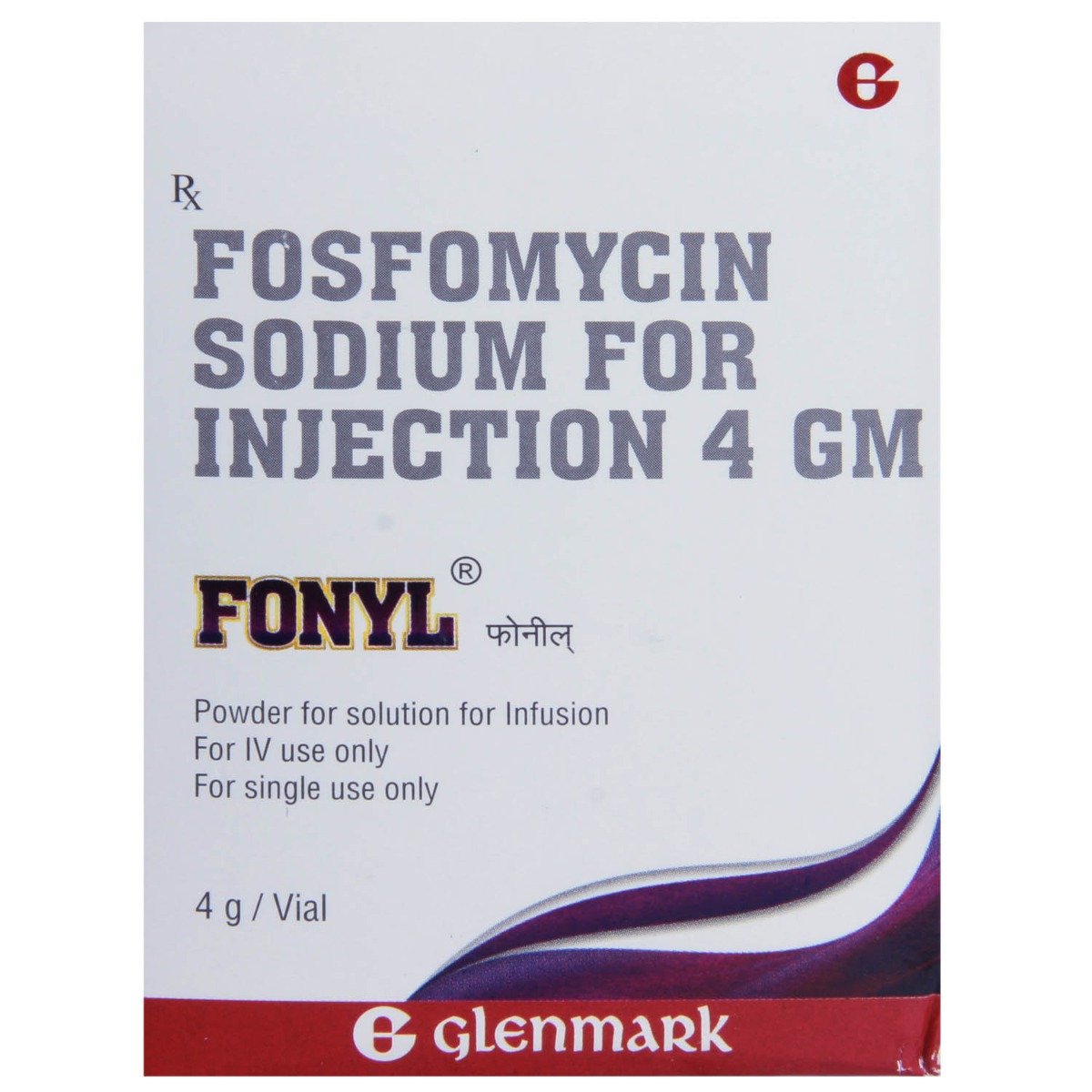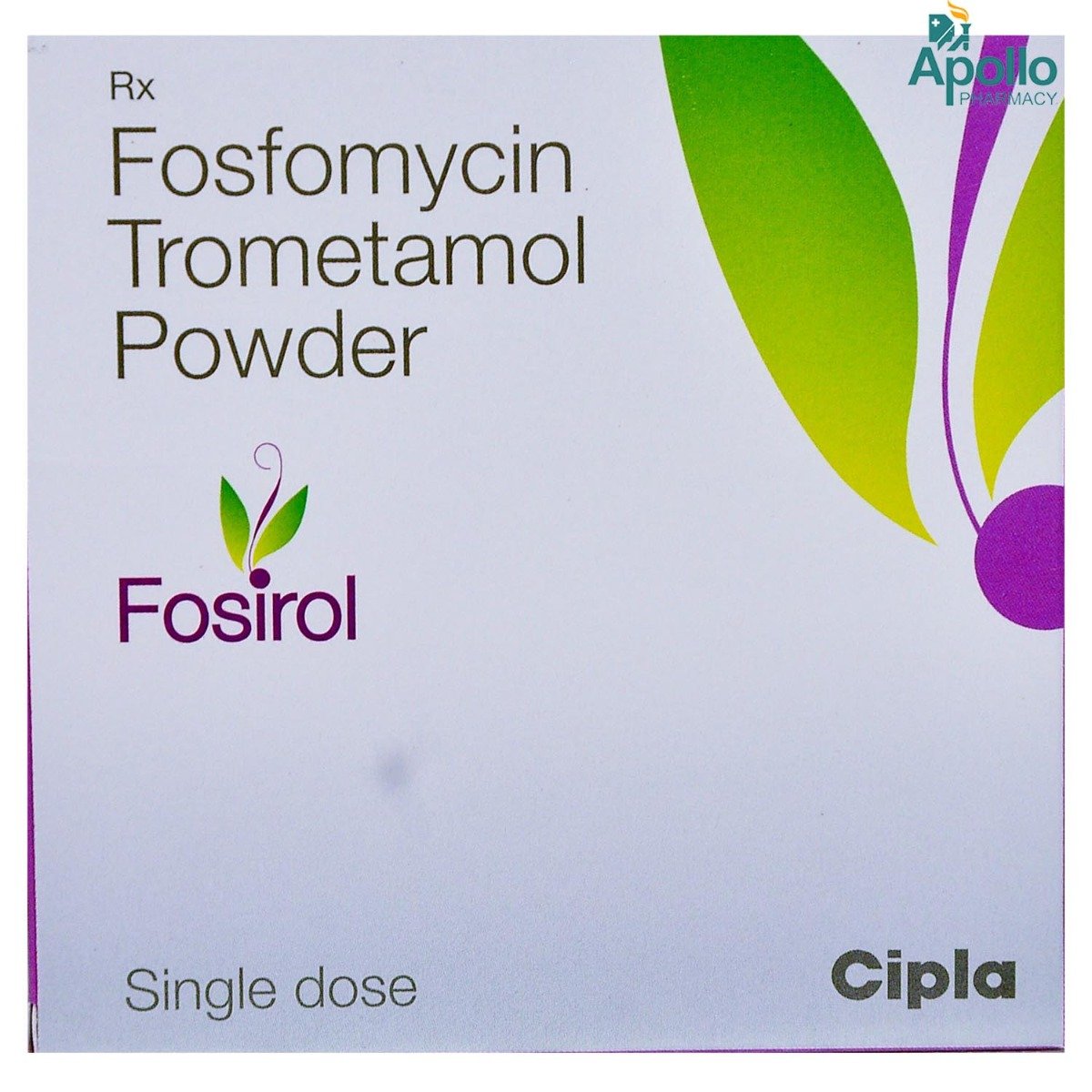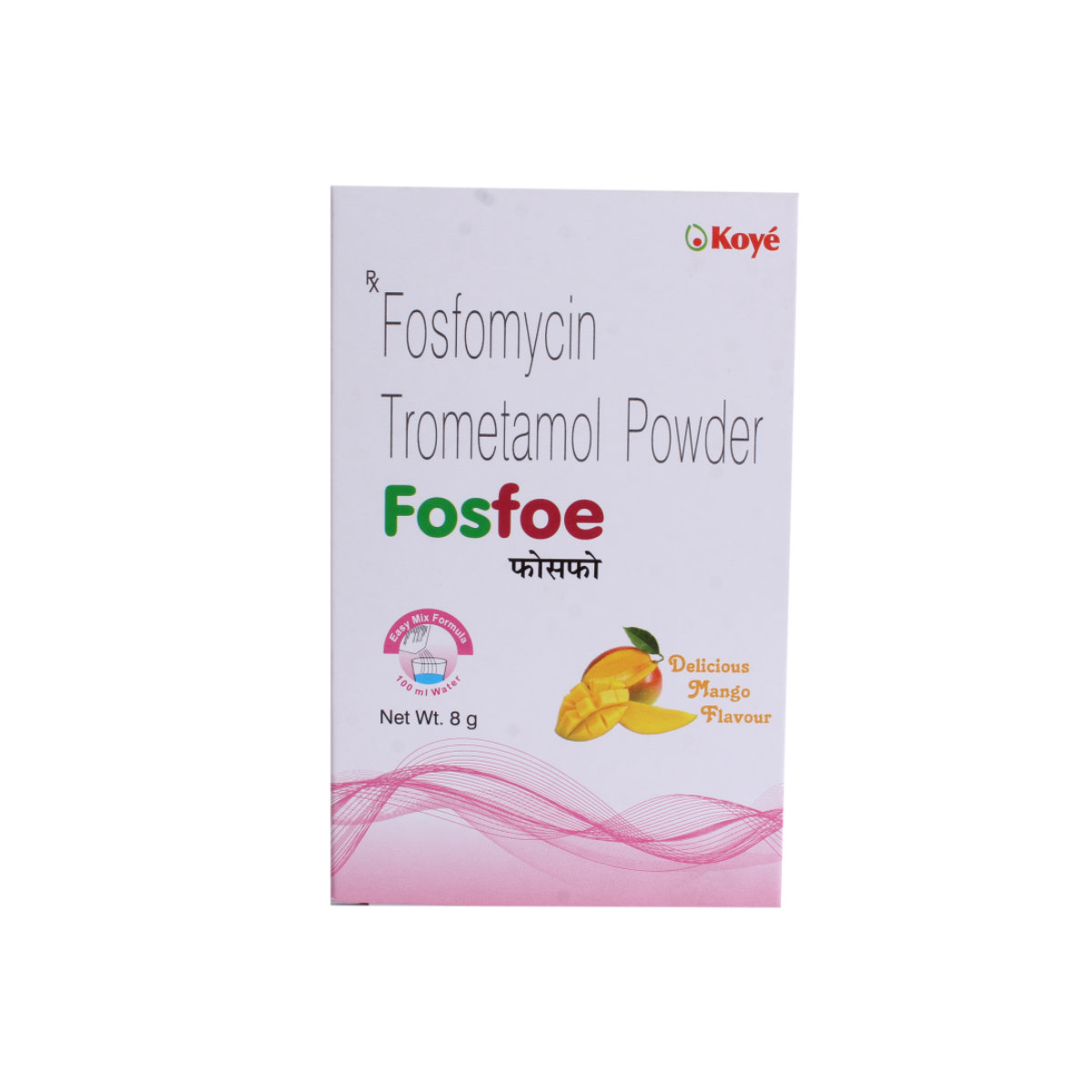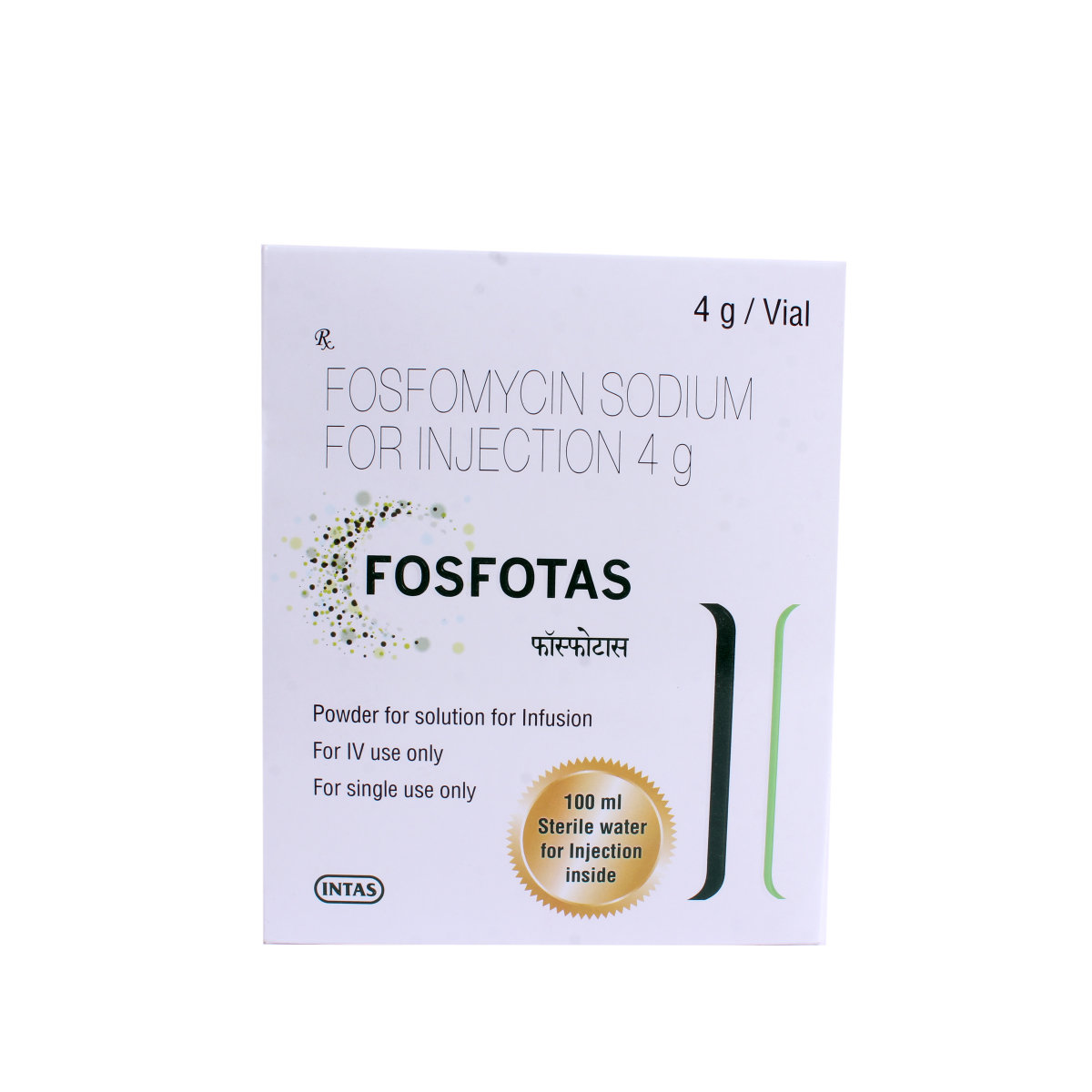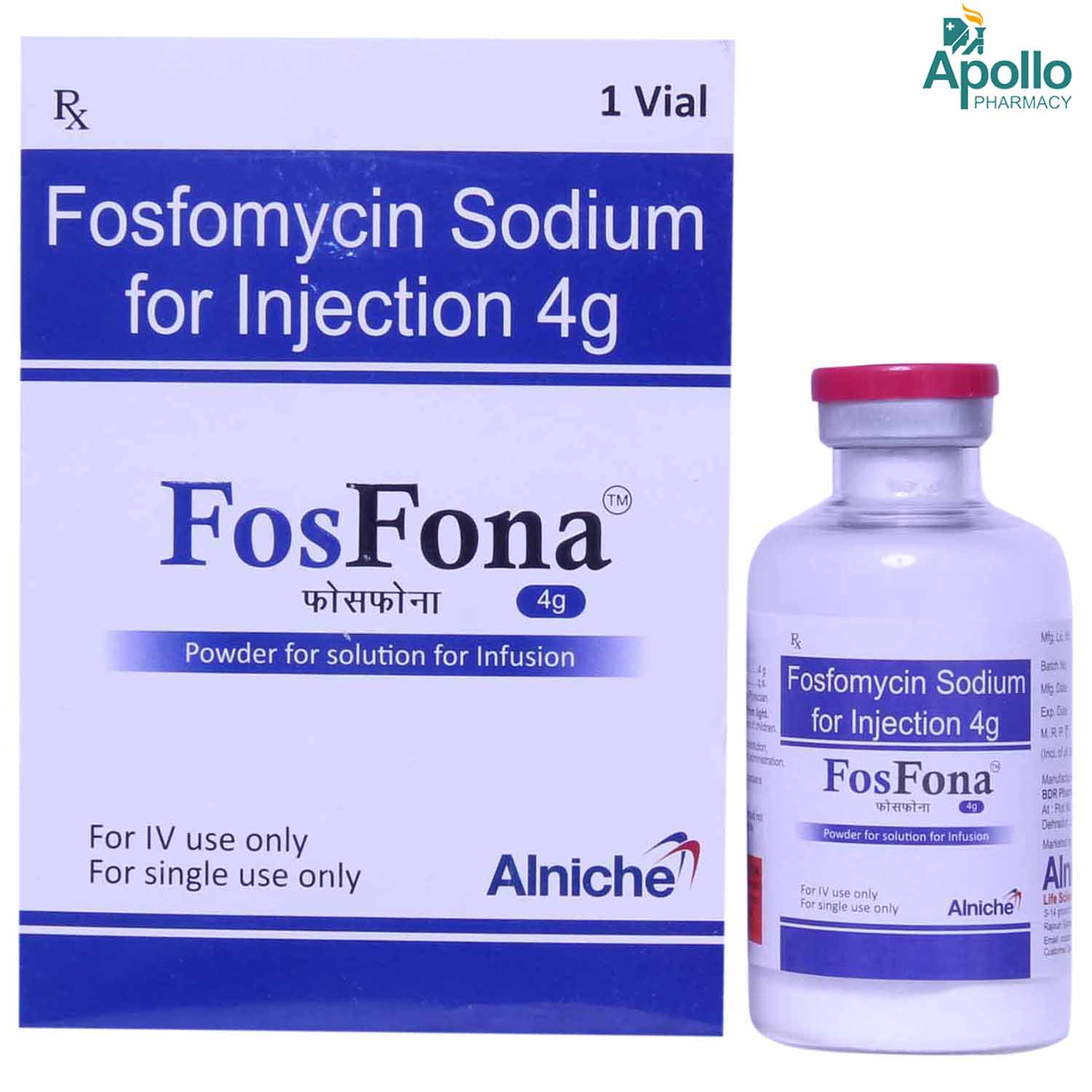Fosfomycin
About Fosfomycin
Fosfomycin belongs to a class of drugs called 'antibiotics' used to treat or prevent bladder infections. Bladder infection is mostly caused by a bacterial infection within the bladder. Bacteria enter through the urethra and move into the bladder and cause infections.
Fosfomycin contains Fosfomycin, which inhibits the formation of the bacterial cell wall (a protective covering) necessary for survival. Thus, it kills bacteria. Also, Fosfomycin decreases the attachment of bacteria to cells lining the urinary bladder, thereby preventing bladder infection caused by E.coli bacteria.
Take Fosfomycin as prescribed by your doctor. You are advised to take Fosfomycin for as long as your doctor has prescribed it for you based on your medical condition. In some cases, you may experience dizziness, headache, indigestion, vulvovaginitis (swelling or infection of vulva and vagina) as side effects of Fosfomycin. Most of these side effects do not require medical attention and gradually resolve over time. However, if the side effects persist or worsen, please consult your doctor.
Please tell your doctor if you are allergic to Fosfomycin, some sugars or other medicines. If you are pregnant or breastfeeding, please inform your doctor before taking Fosfomycin. Fosfomycin is not recommended for children below 12 years of age. Fosfomycin is contraindicated in patients with severe kidney problems and patients undergoing hemodialysis (a process of purifying blood by filtering out extra fluids and wastes when kidneys are not working). If you previously had diarrhoea caused by other antibiotics, inform your doctor before taking Fosfomycin.
Uses of Fosfomycin
Medicinal Benefits
Fosfomycin includes Fosfomycin, a broad-spectrum antibiotic that kills gram-negative and gram-positive bacteria that grow aerobically (in the presence of oxygen) and anaerobically (in the absence of oxygen). Fosfomycin prevents the formation of the necessary bacterial cell wall (a protective covering) for survival. As a result, it kills bacteria. Additionally, Fosfomycin inhibits bacterial attachment to cells lining the urinary bladder, preventing bladder infection caused by E.coli bacteria.
Directions for Use
Storage
Side Effects of Fosfomycin
- Dizziness
- Headache
- Indigestion
- Vulvovaginitis (swelling or infection of vulva and vagina)
Drug Warnings
Please tell your doctor if you are allergic to Fosfomycin, some sugars or other medicines. If you are pregnant or breastfeeding, please inform your doctor before taking Fosfomycin. Fosfomycin is not recommended for children below 12 years of age. Fosfomycin is contraindicated in patients with severe kidney problems and patients undergoing hemodialysis (a process of purifying blood by filtering out extra fluids and wastes when kidneys are not working). Contact your doctor immediately if you notice blood in the stools or have severe stomach pain with diarrhoea. If you previously had diarrhoea caused by other antibiotics, inform your doctor before taking Fosfomycin.
Drug Interactions
Drug-Drug Interaction: Fosfomycin may interact with medicines used to prevent nausea and vomiting (metoclopramide).
Drug-Food Interaction: No interactions found.
Drug-Disease Interaction: If you have previously had diarrhoea caused by other antibiotics or severe kidney problems, inform your doctor before taking Fosfomycin.
Drug-Drug Interactions Checker List:
Safety Advice

Alcohol
cautionThe interaction of alcohol with Fosfomycin is unknown. However, limit or avoid consumption of alcohol while taking Fosfomycin.

Pregnancy
cautionFosfomycin is a category B pregnancy drug and is given to pregnant women only if the doctor thinks the benefits outweigh the risks. Therefore, please inform your doctor if you are pregnant or planning pregnancy before taking Fosfomycin.

Breast Feeding
cautionSmall amounts of Fosfomycin are excreted in human milk. Therefore, it is given to breastfeeding mothers only if the doctor thinks the benefits are greater than the risks.

Driving
cautionFosfomycin may cause dizziness or tiredness in some people. Therefore, avoid driving if you experience any of these symptoms after taking Fosfomycin.

Liver
cautionLimited information is available on the effect of Fosfomycin in patients with liver disease. Therefore, inform your doctor if you have any liver diseases/conditions before taking this medicine.

Kidney
cautionFosfomycin is not recommended if you have severe kidney problems or are undergoing hemodialysis. Inform your doctor if you have any Kidney problems before taking Fosfomycin.

Children
unsafeFosfomycin is not recommended for children below 12 years of age as the safety and effectiveness were not established.
Habit Forming
Diet & Lifestyle Advise
- Avoid alcohol, soda, coffee, tea, and artificial sweeteners, as they may cause bladder irritation.
- Drink plenty of water or other fluids daily while taking Fosfomycin to flush out the bacteria.
- Avoid spicy foods and citrus fruits (lemons, oranges, grapefruits) as they may irritate the bladder.
- Eat foods antioxidant-rich foods such as blueberries, cranberries, tomatoes, spinach, broccoli, and plain greek yoghurt.
- Take probiotics after completing the entire course of Fosfomycin to restore some good bacteria in the intestines that may have been killed. Taking probiotics after antibiotic treatment can reduce the risk of antibiotic-associated diarrhoea. Certain fermented foods like cheese, yoghurt, kombucha, sauerkraut and kimchi can help restore the intestine's good bacteria.
- Include fibre-rich foods, as they can be easily digested by your gut bacteria, which helps stimulate their growth. Thus, fibre-rich foods may help restore healthy gut bacteria after a course of antibiotics. Whole grains such as brown rice and whole-grain bread should be included in your diet.
Special Advise
- Please consult your doctor if the symptoms do not improve after 3 days of treatment with Fosfomycin.
Patients Concern
Disease/Condition Glossary
Bladder infection: This is caused primarily by a bacterial infection within the bladder. The most common type of urinary tract infection is a bladder infection. Bacteria enter the urethra, migrate to the bladder, and cause infections. Cloudy or bloody urine, urinating more frequently than usual, pain or burning when urinating, cramping or pressure in the lower back or lower abdomen, foul-smelling urine, or a frequent sensation of urge to urinate are all symptoms. Bladder infections can also result in mild back pain, which is linked to a kidney infection.
FAQs
Fosfomycin contains Fosfomycin, which inhibits the formation of the bacterial cell wall (a protective covering) necessary for their survival. Thus, it kills bacteria. Also, Fosfomycin decreases the attachment of bacteria to cells lining the urinary bladder.
Fosfomycin is not recommended in patients undergoing hemodialysis (a process of purifying blood by filtering out extra fluids and wastes when kidneys are not working) as the excretion of Fosfomycin may be reduced in such patients leading to the accumulation of Fosfomycin in the body. Therefore, please inform your doctor if you are undergoing hemodialysis before taking Fosfomycin so that alternative medicine may be prescribed.
Yes, Fosfomycin may cause headaches as a common side effect. However, if the condition persists or worsens, please consult a doctor.
You are not recommended to take Fosfomycin with metoclopramide as co-administration of these two medicines may reduce the absorption of Fosfomycin. However, please consult your doctor before taking Fosfomycin with other medicines.
You are not recommended to stop taking Fosfomycin without consulting your doctor, as it may worsen the infection or cause recurring symptoms. Therefore, complete the full course of antibiotics and take Fosfomycin for as long as your doctor has prescribed it, and if you experience any difficulty while taking Fosfomycin, please consult your doctor.

